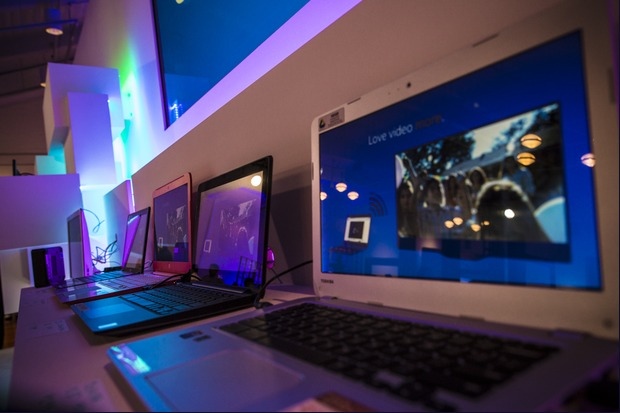Last Fall, Intel and its OEM friends offered the world a total of four Chromebooks. However, the world’s biggest, most important chipmaker et al have announced their intention to multiply that by at least five — 20 Chromebooks available by year’s end.
Nothing says, “Screw Microsoft,” quite like a Chromebook — no Windows, no Office and zero chance of ever running either.
With that thought in mind comes the news that Intel and its OEM manufacturing partners are increasing their Chromebook offerings from four to 20. Moreover, the chip giant says it’s playing a leading role in the release of 64-bit Chrome OS.
“Intel has grown to become the No. 1 microprocessor in Chrome systems,” said Navin Shenoy, vice president and general manager, Intel Mobile Client Platforms Group. “We’ve been working on five generations of Chrome and after Google, Intel is the largest contributor to the Chromium OS. Intel chips are the first and only to support 64-bit Chrome OS. This deep history and investment combined with our stellar Bay Trail and Haswell SoCs mean Intel can offer the best performing devices at every price point in the Chrome category. When people are shopping for Chrome devices, they should look for Intel Inside.”
However, if you’re not confused by that, consider that these first Intel Celeron branded Chrome devices are based on the Intel Bay Trail-M system-on-chip.
That is some seriously deep, deep, deep, um, marketing jargon.
Chromebook: Fully Jargoned Desktops, Too!
Intel et al are also taking another stab at the Chromebox concept, which is a desktop PC running Google’s Chrome OS operating system. In addition to Asus and Samsung, Intel is also partnering with Hewlett Packard and product is expected to ship in June.
How serious is this latest Chrome on the desktop effort? HP will be offering models in black, white and, here’s the Apple killer, sky blue.
Lastly, Intel and LG are expected to deliver a Chromebase all-in-one desktop PC. How, precisely, a Chromebase computer is different from a Chromebox or Chromebook computer is not clear.
Perhaps there is some measurable awesomeness delta between the various Chrome OS, Chromebase, Chromebox, Chromium OS and Chromebook products…
What’s your take?
Via: ZDNet

